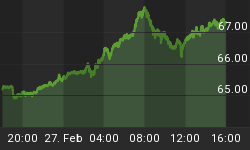Senate Democrats agreed on a $3.5-trillion plan for "human infrastructure” this week to expand spending on health care for the elderly, climate change and programs to help families in what is an attempt to get around Republican opposition to massive infrastructure spending plans.
The details of the agreement are still a secret, but Senate Majority Leader Chuck Schumer did note that it would expand Medicare to cover vision, dental and hearing costs.
It's expected that it will also extend childcare payments, as well as subsidies for health care coverage during the pandemic and help transition the economy from fossil fuel reliance to alternative energy sources, among other things.
“We are very proud of this plan. We know we have a long road to go … If we pass this, this is the most profound change to help American families in generations,” Schumer told reporters.
Democrats are hoping to pass the spending plan without Republican support.
In order to make that happen, they will need the support of the full 50-member Democratic caucus. In order for the measure to proceed, and circumvent a GOP filibustering, they will likely use a budget reconciliation process, which was also used to pass the $1.9-trillion coronavirus relief measure in March.
There is, however, no guarantee that President Joe Biden and Democratic leaders can unite all Senate Democrats. After all, Senate Budget Committee chairman Bernie Sanders originally sought a $6 trillion package, while some others have been noncommittal about backing another trillion-dollar package.
Republicans are already criticizing the plan, with the view being that rising inflation was caused by the Democrats’ March spending spree.
Senate Minority Leader Mitch McConnell warned that this summer would "make our current inflationary mess look like small potatoes”.
There is also ongoing negotiation on a separate, bipartisan $1.2-trillion infrastructure measure for roads, bridges, water systems and broadband internet.
Members of both political parties hope to move forward with votes on both spending plans before the Senate breaks for its August recess.
As always, it comes down to the million dollar question--or in this case, the trillion-dollar question: How will we pay for it?
Democrats have not yet specified that; however, Biden has previously pushed for raising taxes on the wealthy and corporations, against strong Republican opposition.
Biden plans to raise the corporate tax rate from 21% to 28%, reversing the lower corporate rate of 10.5% implemented by the Trump administration.
Biden’s tax plan proposes the 12.4% Social Security tax to kick back in for incomes above $400,000. He’s also proposing a return of the top bracket rate to the Obama-era’s 39.6% from its current 37% rate.
The new spending plan would prohibit tax increases on small businesses and people making under $400,000.
The administration estimates stepping up tax enforcement and closing tax loopholes for large corporations that pay zero dollars in taxes, would bring in $700 billion over the next decade.
While tax hikes might not win any support from Republicans, polls suggest that a majority of Americans are on board.
According to a recent Pew Research Center survey, for 80% of Americans it is “a significant bother” that some corporations and wealthy people are avoiding their "fair share" of taxes.
Also tellingly, only 25% of Democrats surveyed said they were “significantly bothered” by the taxes they personally pay, compared to 41% of Republicans.
















